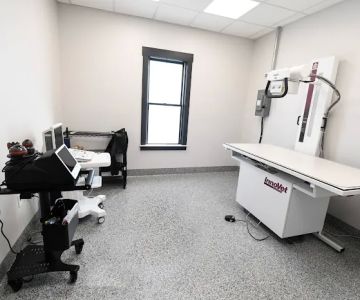Do You Get Paid During a Veterinary Residency Program? A Complete Guide
Becoming a veterinarian is a challenging and rewarding journey that requires years of education and hands-on experience. After completing veterinary school, many aspiring veterinarians opt for a residency program to specialize in a particular area of veterinary medicine. This raises the question, "Do you get paid during a veterinary residency program?" As a veterinarian who has been through this process, I can share some insights about this often-overlooked phase of veterinary education.
1. What is a Veterinary Residency Program?
A veterinary residency is a post-graduate training program designed to provide veterinarians with advanced knowledge and specialized expertise in a specific field of veterinary medicine. This can include specialties like surgery, dermatology, internal medicine, or emergency and critical care. Veterinary residency programs typically last between 3 to 4 years, during which residents gain hands-on experience under the supervision of experienced specialists.
The goal of a residency is not just to become an expert in a particular area but also to prepare residents for board certification in their chosen specialty. For example, a veterinarian completing a residency in small animal surgery may go on to become board-certified by the American College of Veterinary Surgeons (ACVS), allowing them to practice as a specialist in that field.
2. Are Veterinary Residents Paid During Their Training?
In most cases, veterinary residency programs are paid positions, though the salary can vary significantly depending on the location, specialty, and the institution offering the program. On average, veterinary residents earn a salary that ranges from $30,000 to $50,000 per year. This salary may seem modest when compared to other medical specialties, but it’s important to remember that residency programs in veterinary medicine often involve long hours, including nights and weekends.
Veterinary residency salaries are usually lower than those of board-certified veterinarians, but they come with the opportunity to receive specialized training and mentorship. Some institutions may also offer additional benefits, such as health insurance, paid time off, and assistance with research opportunities. However, there are certain veterinary residency programs that may not offer substantial compensation, particularly in highly competitive specialties or smaller institutions.
3. How Does the Salary Compare to Other Medical Residencies?
When comparing veterinary residency salaries to human medical residency salaries, it’s clear that veterinary residents earn less. For instance, a medical resident in the U.S. typically earns between $50,000 and $70,000 annually, with some specialties paying more. While this is still modest, the difference in pay between veterinary and human medicine is notable, reflecting the different levels of funding and public perception of both fields.
That said, veterinary medicine is a rewarding career in its own right, with residents gaining invaluable experience working with animals in clinical settings. Although the pay may not be as high as in human medical residency programs, veterinary residents are often passionate about working with animals, and this intrinsic reward plays a significant role in their career choices.
4. The Pros and Cons of Getting Paid During a Veterinary Residency
There are both advantages and disadvantages to receiving payment during a veterinary residency. On the one hand, earning a salary during your residency can help cover living expenses, student loans, and other financial commitments. It also provides a sense of financial independence while you gain specialized training.
However, the salary is often low enough that many residents must find additional sources of income, such as part-time work or teaching assistant positions. Additionally, the long hours and the physical and emotional demands of the residency can make it difficult to balance work and personal life, leaving little room for other jobs or activities. For some residents, this can lead to financial stress despite being paid.
5. Alternative Funding and Scholarships for Veterinary Residents
Some veterinary residency programs may offer alternative sources of funding, such as scholarships, grants, or research stipends. These financial aids can help offset the lower salary that residents receive. For example, some veterinary schools offer specialized scholarships or funding opportunities for residents who are conducting groundbreaking research or who are working in underserved areas or specialties. These programs can provide additional financial relief and reduce the burden of living on a modest salary.
There are also external organizations, such as the American Veterinary Medical Association (AVMA), that offer fellowships, research grants, and scholarships for residents pursuing advanced training in various veterinary specialties. Residents should explore these options and discuss potential financial aid opportunities with their program directors before beginning their residency training.
6. The Long-Term Benefits of Completing a Veterinary Residency
While the salary during a veterinary residency may not be substantial, the long-term benefits of completing this training are significant. After finishing a residency, veterinarians have the opportunity to work in specialized practices, teaching hospitals, or research institutions. They can charge higher fees for their specialized services, and they often find themselves in high demand due to their advanced knowledge and skills.
Board certification in a veterinary specialty can open doors to more career opportunities, including teaching at universities, conducting research, or providing specialized medical care to animals in need. Additionally, veterinary specialists often earn higher salaries than general veterinarians, making the investment in residency training worthwhile in the long run.
Conclusion: Is a Veterinary Residency Worth It?
If you’re considering a career in veterinary medicine and wondering about the financial aspects of a veterinary residency, it’s important to weigh the pros and cons. While the pay during a veterinary residency may not be high, the experience, training, and potential career opportunities that come with it are invaluable. Becoming a veterinary specialist requires hard work, dedication, and financial commitment, but for many veterinarians, the passion for animals and the desire to make a difference in the field makes it all worthwhile.
For aspiring veterinarians, understanding the financial aspects of residency and planning for the costs associated with this advanced training is crucial. It’s also important to research different residency programs to find one that fits your career goals and financial needs. Whether or not you get paid during a veterinary residency program, the experience gained during this time is an essential step in becoming a highly skilled, specialized veterinarian.











